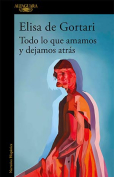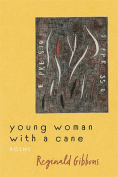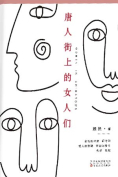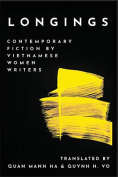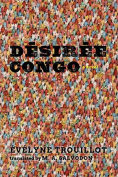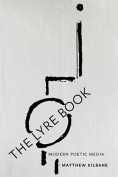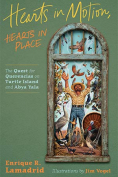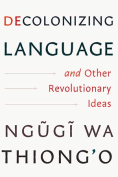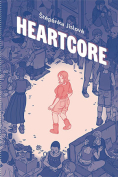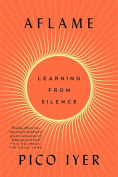Longings: Contemporary Fiction by Vietnamese Women Writers
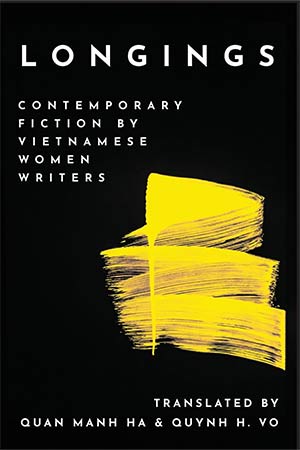
Lubbock. Texas Tech University Press. 2024. 288 pages.
Longings is the first collection of contemporary fiction aimed at increasing global readers’ recognition of women’s contributions to Vietnam’s literary canon since the late 1990s. The anthology features both established and emerging female authors as they collectively explore the trials and tribulations of Vietnamese women’s lives under the shadow of men.
The stories in Longings are often tied together by common themes of female sexual frustration and desire, longing as a form of agency, and the sustaining comfort of female kinship. For instance, Dạ Ngân’s “White Pillows,” which focuses on a woman’s struggle to suppress her sexual frustration at her husband’s impotence due to war-related injuries, stands out in its blatant refusal to trivialize the protagonist’s desires or overly emphasize her husband’s experience—a convention in Western women’s literature studies but a revolutionary one in Vietnam’s patriarchal literary canon. This story legitimizes the Vietnamese woman’s frustrations and praises her steadfast loyalty to her husband as a signifier of her innate strength and morality.
Longing extends beyond a passive emotion and core virtue of many Vietnamese women because the act of longing becomes a strategy for women to reclaim their agency. In “Selecting a Husband,” by Kiều Bích Hậu, a young, traumatized widow longs to reawaken her dominating sexual desires without sacrificing her newfound agency as a single woman in Hà Nội. The story echoes Western feminist ideas of expanding the woman’s role beyond the private sphere, but it does not reject the institution of marriage as a whole like a Western feminist might. Instead, the author reframes marriage as a commitment to a woman’s desires, where the best husband is the one she creates and imagines for herself.
Female kinship emerges as a central motif throughout Longings but is most noticeable in “Late Moon,” by Nguyễn Thị Châu Giang, where three women grieve their grandmother’s passing and the father’s subsequent abandonment. Like many feminist writers, Nguyễn explicitly debates the proper way to be a woman, refusing to suggest one or two definitions of womanhood. Instead, the narrative empathizes with the abandoned mother, the unwed aunt with a child, and the deceased grandmother’s efforts to help them be taken seriously by their male counterparts. “Late Moon,” alongside other stories, critiques how women internalize patriarchal values that glorify sacrifice and shun resistance. The story celebrates Auntie’s complete disregard for men’s approval and considers her older sister’s refusal to get remarried foolish. This theme continues in “The Haunted Garden,” by Trầm Hương, which portrays a businesswoman who tries to balance her ambitions and raise her sister’s children, only to end up waiting alone in a haunted garden for her brother-in-law to return. The protagonist’s sacrifice, while understandable, is framed as a tragic waste of her potential.
Collectively, Longings clearly informs its readers that while some women’s struggles might be shared, they are far from universal. These female Vietnamese authors do not eschew exposing the often-devastating impacts that war, generational trauma, domestic violence, misogyny, and Confucian values have had on their lives. All women struggle against patriarchy, but Longings demonstrates how Vietnamese women carry another burden exacerbated by colonial exploitation, rapid modernization, and globalization.
While Vietnamese literature in English translation is often either about classic masterpieces or about the US war in Vietnam and its aftermath, Longings deviates from this trajectory because it centers less on the war and more on gender issues and women’s aspirations in the early twenty-first century. The introductory essay by Huỳnh Như Phương excels at succinctly placing the stories within the larger context of the US/Vietnam normalization in the mid-1990s and Vietnam’s heteropatriarchal culture. The translators’ footnotes are sparse but adequate and unobtrusive, as the stories make sense of women’s self-determination struggles, sexual harassment, and adultery.
As an anthology, Longings is as thematically and stylistically multidimensional as the Vietnamese women’s experiences and their desires for freedom, recognition, and respect, regardless of whether they come from the Kinh population or ethnic minority groups.
Josie Miller
University of Montana

